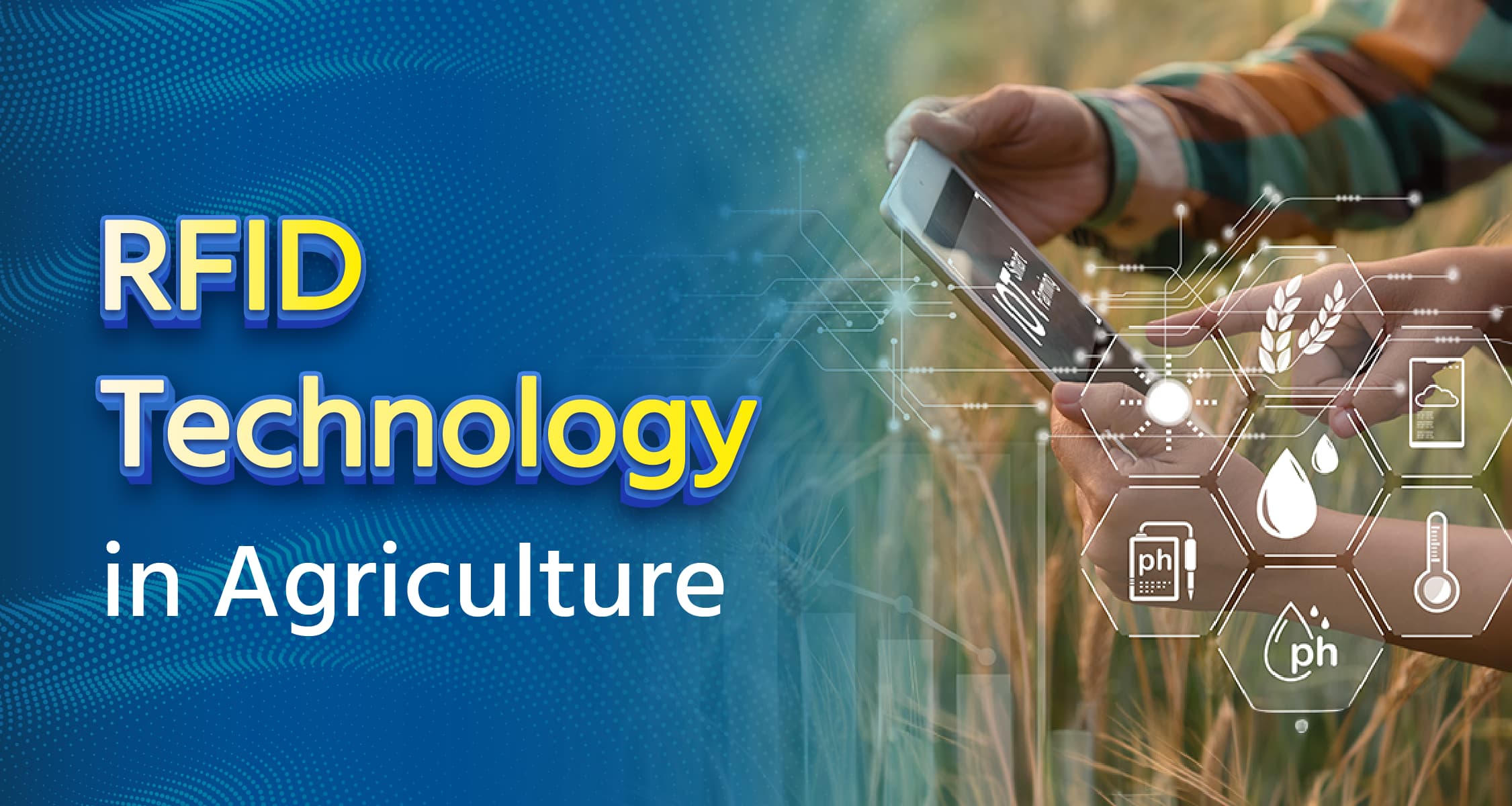पोस्ट विवरण
RFID Technology in Agriculture

Wireless communications are a very important component in agriculture pertaining to technological innovations. Monitoring and gathering data in real-time can be a profitable endeavor for farmers for a successful harvest. Current developments in RFID technology have brought up quite promising prospects in the agricultural space.
RFID in Agriculture
RFID technology plays a crucial role in monitoring and ensuring a healthy and high-quality harvest. Additionally, it aids in the secure packaging and transportation of agricultural commodities. This technology employs specific hardware and software to track and monitor livestock effectively. Over time, RFID technology can contribute to the establishment of a comprehensive and cost-effective monitoring system, which can significantly benefit farmers.
Advantages of RFID Technology in Agriculture
RFID technology offers a range of advantages in agriculture, which can optimize diverse agricultural tasks, thereby enhancing efficiency and productivity. This capability enables stakeholders in the agricultural sector to closely track and monitor their agricultural commodities.
- RFID tags offer significant data storage capabilities. In agricultural contexts, they can retain various details such as harvest dates, moisture levels, temperatures, and nutritional content, ensuring consistent information availability. These tags boast robust security features and seamless integration capabilities.
- RFID technology finds utility in smart greenhouse systems, facilitating the collection of vital data essential for equipment management, monitoring crop development and harvest schedules, and optimizing resource utilization.
- Moreover, RFID enables comprehensive traceability of agricultural commodities from production to consumption. This aids in ensuring food safety across the entire distribution chain, enhancing consumer confidence.
- Furthermore, RFID technology streamlines processes related to the import and export of agricultural goods by automating data storage and retrieval, contributing to smoother trade operations.
Challenges of RFID Technology in Agriculture
While RFID technology offers numerous benefits, it also presents several challenges that necessitate attention.
- Adverse weather conditions such as extreme temperatures and heavy rainfall pose difficulties for RFID functionality, requiring suitable weather conditions for optimal performance.
- RFID tags have the capacity to store extensive data, but effective systems must be established for managing this data to ensure its utilization. Failure to manage data appropriately renders generated data ineffective.
- The signal strength and reading range of RFID systems can be negatively impacted by crop canopy propagation, underscoring the need for solutions to enhance reading ranges consistently.
- Understanding the applicable frequencies for different operations is crucial for optimizing the efficiency of installed RFID systems.
- Although implementing RFID systems may involve initial costs for farmers, the long-term benefits for agricultural operations make it a worthwhile investment.
RFID technology holds significant promise for farmers in monitoring and tracing agricultural commodities, offering a means to prevent potential future adversities. Yet, the installation and management of RFID systems can pose challenges if farmers lack adequate training. Farmers need to receive proper training on retrieving essential data and effectively utilizing it. Numerous organizations in India are actively delivering essential support and training directly to farmers, facilitating their swift adoption of new technological advancements.
Are you interested in adopting RFID technology? Let us know your answer in the comments. For more information on modern agricultural technologies, follow the 'Krishi Tech' channel now. Don't forget to like and share this post.
Frequently Asked Questions (FAQs)
Q: How is RFID used in Agriculture?
A: RFID sensors gather information regarding soil conditions, moisture levels, and environmental conditions. This data enables farmers to customize irrigation, fertilization, and pest management strategies according to particular areas and conditions, thereby minimizing resource wastage and environmental repercussions.
Q: How does RFID work?
A: In essence, RFID utilizes radio frequency waves to execute AIDC operations. AIDC, an acronym for Automatic Identification and Data Capture technology, facilitates the identification of objects and the retrieval and organization of data associated with them.
Q: How is RFID used in the food sector?
A: An RFID system offers individual product traceability without requiring a direct line of sight for data reading. This distinct automation enhances supply chain and logistics visibility, minimizing errors, unidentified losses, and instances of stockout products.
जारी रखने के लिए कृपया लॉगिन करें

फसल चिकित्सक से मुफ़्त सलाह पाएँ
